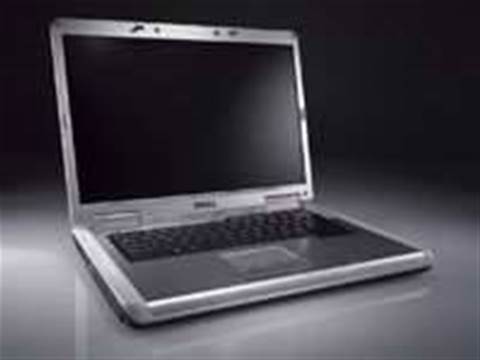The dethroning of Dell as the world's largest computer manufacturer follows a deliberate strategy shift by the company, but it remains unclear whether the changes are for the better.
Both IDC and Gartner released market reports earlier last week showing that Dell lost market share in the fourth quarter and was surpassed by HP as the world's number one PC manufacturer.
Analysts suggested, however, that Dell's market share is dropping simply because it has stopped pursuing a large share of the market.
"Dell might not want to play in a low-end price area," said Mikako Kitagawa, principal analyst at Gartner Dataquest's Client Computing Markets Group.
"Vendors really have to lower the price to gain the market, so it is highly possible that Dell did not want to play in that area."
David Daoud, manager of the Personal Computing and PC Tracker programmes at IDC, explained that Dell may be considering shifting its focus from entry-level machines to business computers and more customisable high-end PCs.
The company's Alienware gaming machines, for example, offer much higher profit margins.
"There is internal discussion within Dell as to whether it is going for high-end products or for market share and low-end products," said Daoud.
The analyst also suggested that Dell's sales methods could have something to do with its falling market share.
Dell has fewer opportunities to catch the attention of potential buyers, according to Daoud, as it only markets directly to customers.
"HP has a much more diverse channel strategy," he explained. "It sells direct, through retailers, system integrators, you name it. This enables HP to do better than any company that puts all its eggs in one basket."
Dell is expected to announce further elements of its 'Dell 2.0' programme in the coming weeks aimed at revamping much of the company's business strategy.
A spokesman declined to comment on any upcoming initiatives or future plans, but said that Dell remains confident in its direct marketing system.
Like much of the PC industry, Dell could see a surge in sales from the upcoming release of Windows Vista.
But if Microsoft's new operating system fails to excite consumers, the industry could be facing a period of "good enough computing" during which buyers delay investments in new hardware because current systems meet all user demands.
"I think 2007 is going to be a critical year for the entire industry. We are reaching a state where the mature markets are fairly saturated," said Daoud.
"The industry needs to put together new products that are interesting, attractive and convincing to customers. Short of Microsoft's convincing customers that Vista is a good thing, it is going to be a tough market."
Charles Smulders, managing vice president at Gartner Research, said that Dell's Vista spike could come as late as 2008, when businesses weary of stability issues and security flaws begin to update to the new operating system.
"I think that there will be a small bubble around Vista's launch, but it is not going to be as significant to the market as some would expect," he said.
Dell pays dearly for strategy change
By
Shaun Nichols
on Jan 22, 2007 9:22AM

Got a news tip for our journalists? Share it with us anonymously here.
Tags:
hardware
Partner Content

Promoted Content
Have ticket queues become your quiet business risk?

Think Technology Australia deliver massive ROI to a Toyota dealership through SharePoint-powered, automated document management
.jpg&h=142&w=230&c=1&s=1)
New Microsoft CSP rules? Here’s how MSPs can stay ahead with Ingram Micro
_(27).jpg&h=142&w=230&c=1&s=1)
Promoted Content
Why Renew IT Is Different: Where Science, AI and Sustainability Redefine IT Asset Disposition

MSPs with a robust data protection strategy will achieve market success







.jpg&w=100&c=1&s=0)











